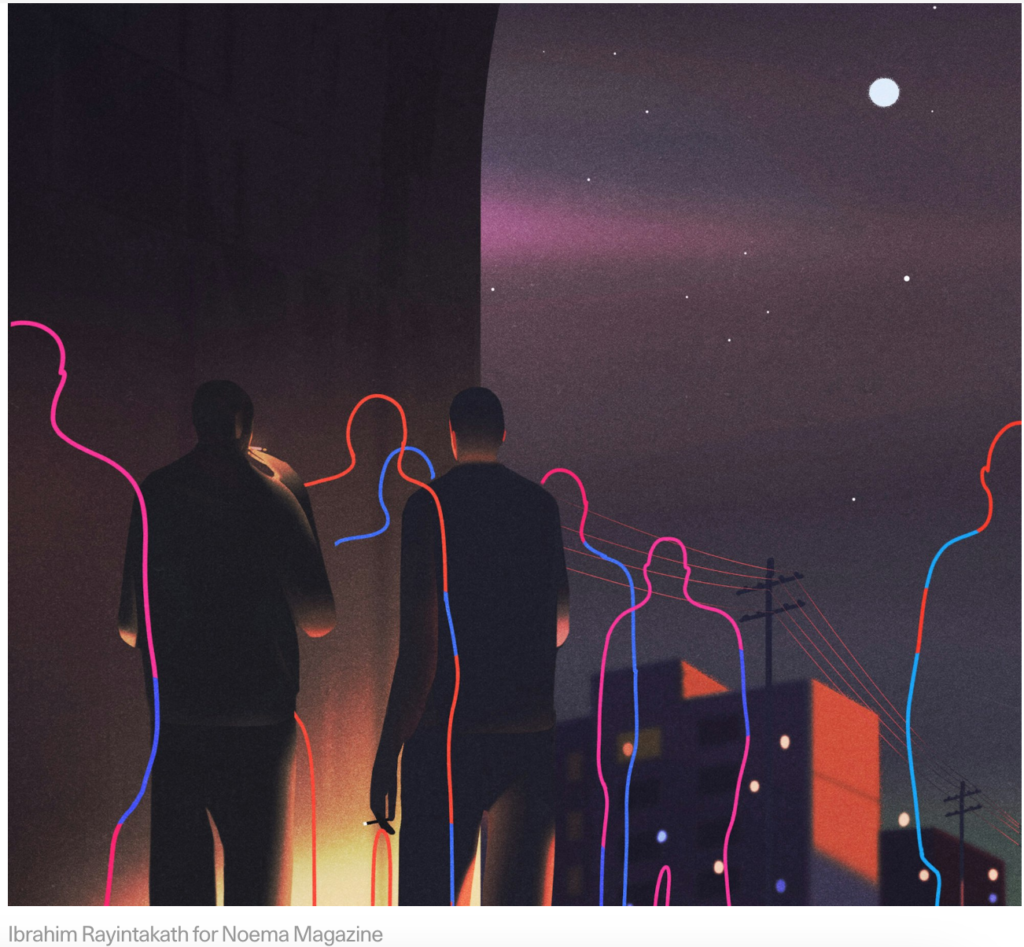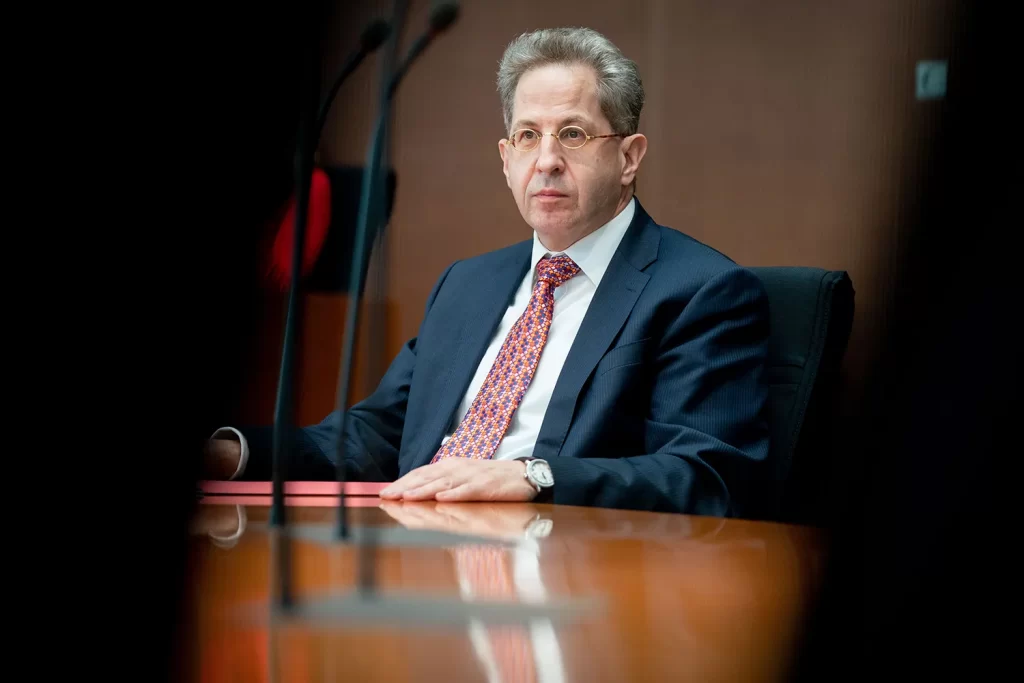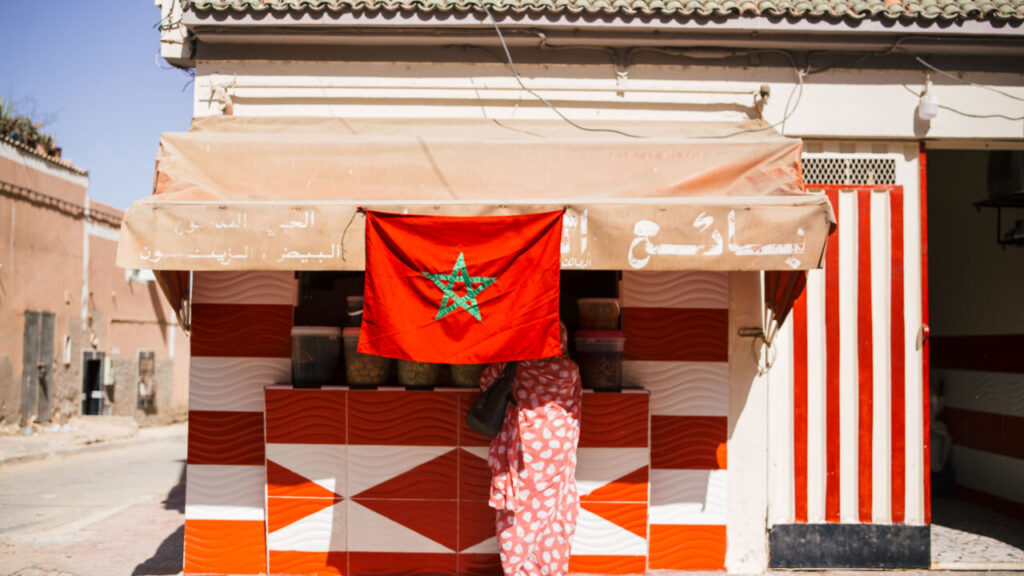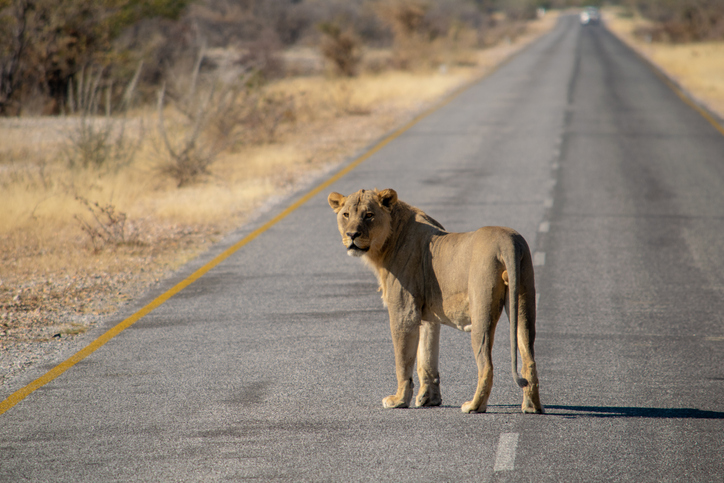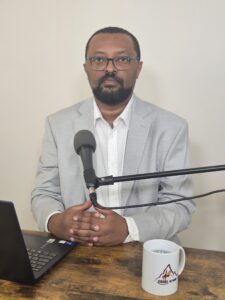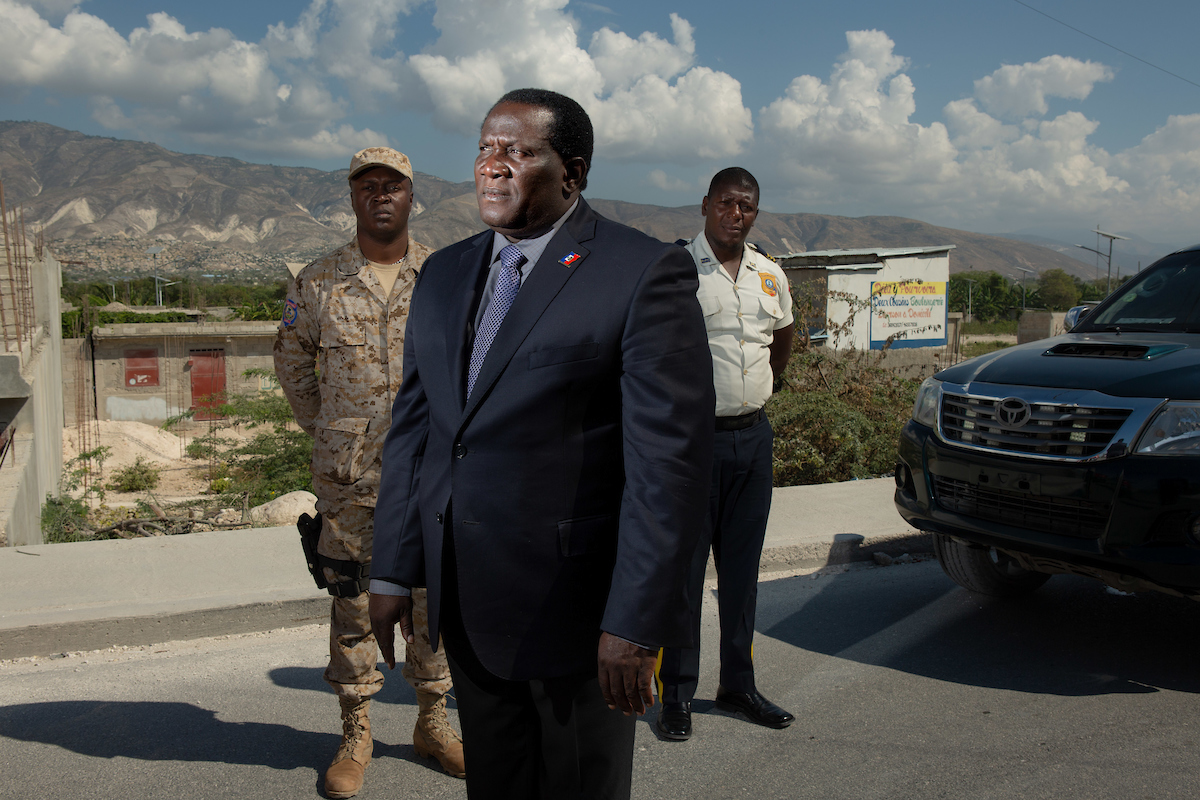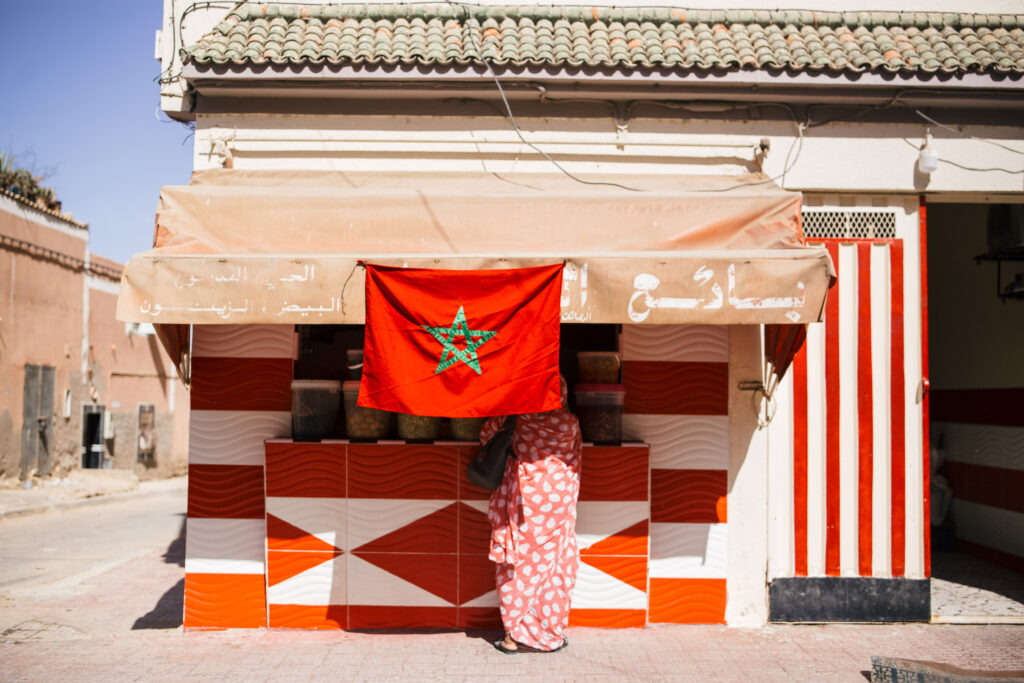More refugees live in cities. Could cash help them rebuild their lives?
Author: Jacob Kushner
Did Germany’s ‘Refugee Crisis’ Even Exist?
NoemaA look inside the imagination of the nation’s leading anti-immigrant party in Berlin.
Read: NOEMA Mag
The three german extremist friends who robbed banks and murdered immigrants
CrimeReads, LitHubThe far-right serial killers terrorized Germany’s immigrants in pursuit of a ‘white’ nation.
Read: Crime Reads
Germany Is Now Spying on Its Own Top Spy
Foreign Policy MagazineHans-Georg Maassen has a troubling relationship with the far-right—just like the agency he used to head.
Read: Foreign Policy
Inside Germany’s Taxpayer Funded Neo-Nazi Networks
The Dial Mag
One overcast day in Berlin in May 2016, a conversation about informants threw my career down an eight-year-long detour.
Read: The Dial
Morocco’s War Against the Sahrawi
TruthDigIn the Phosphorus-rich Western Sahara, the government in Rabat used the pandemic as cover for a political crackdown.
Read: TruthDig
Eat Only the Word of God
The Dial MagHow a Pentecostal preacher in Kenya persuaded hundreds of worshipers to starve themselves — and their children — to death.
Read: The Dial [The Pundits Issue]
The Detention of Antoine Galindo
The Dial Mag
NAIROBI — Last week, Ethiopian authorities detained French journalist Antoine Galindo of Africa Intelligence, a news and analysis publication covering African states, on suspicion of “conspiracy to create chaos in Ethiopia.” Galindo was in Ethiopia on a government-issued journalist visa to cover a routine — literally “Ordinary” — African Union summit.
Detentions of journalists have become commonplace under Ethiopia’s Prime Minister, the suspected war criminal and Nobel Peace Prize winner Abiy Ahmed. In 2019, Abiy, a soldier turned intelligence officer, was lauded for helping end a 20-year conflict with neighboring Eritrea. One year later, when civil war broke out in Ethiopia’s Tigray region, the peace laureate allowed Eritrean soldiers to enter Ethiopia where they slaughtered and raped Tigrayan civilians.
Since taking office in 2018, Abiy has used internet and phone blackouts and press crackdowns to prevent Ethiopians, and the world, from learning the truth about the actions of his regime. I recently wrote for The Dial about the plight of Ethiopian journalist Tamerat Negera, who was kidnapped by Abiy’s forces and detained for months before escaping into exile after his release. In 2021, Ethiopian journalists Amir Aman Kiyaro and Thomas Engida were arbitrarily detained for four months without evidence or charge; months later, 18 other journalists were arrested, two of whom faced possible death sentences for their reporting. Just last April, Ethiopia detained six more Ethiopian journalists for doing their jobs.
Though local journalists bear the brunt of Abiy’s repression of the press, foreign journalists and researchers too have been barred, deported, and detained. A few weeks after the conflict in Tigray began, Ethiopia deported a leading political analyst and researcher for the International Crisis Group, William Davison. Earlier that month, the Ethiopian embassy in Nairobi invited me, along with dozens of other correspondents, to a luncheon to “improve the accuracy and the factual context of reporting on the current state of affairs in Ethiopia.” There, then-H.E. Ambassador Meles Alem Tikea told journalists that he believed the operation would be short and that it was not a civil war. The conflict lasted two years, killed or starved an estimated 1.4 million people and displaced more than four million others.
The ambassador promised journalists that we’d be welcome to report in Ethiopia, and that the government had nothing to hide. Both statements were lies: Abiy’s government refused to process our visas, forbidding journalists from entering Tigray. Presumably Abiy’s administration was fearful that we’d uncover now-widely documented atrocities — possible acts of ethnic cleansing — committed by his soldiers and those from neighboring Eritrea. Satellite images and witnesses revealed in July of last year that security forces were digging up mass graves to burn bodies en masse in an apparent attempt to destroy evidence of the slaughter. Despite that Ethiopia’s current peace is relative and tenuous, and that those responsible for or complicit in the killings, rape, and other crimes have yet to face justice, the Biden administration last year lifted economic aid sanctions, quietly informing Congress that Ethiopia was no longer engaging in a “pattern of gross violations of human rights.” Violence has spread to other regions of the country. Last week, Reuters revealed a secret death squad had operated out of offices of Abiy’s political party.
According to the Committee to Protect Journalists (CPJ), Ethiopia currently jails more journalists than any other nation in sub-Saharan Africa except for neighboring Eritrea, where 16 were detained as of December. Galindo’s arrest last week came as he interviewed a spokesperson from the Oromo Liberation Front, an opposition political party, in his Addis hotel. “The baseless and unjustified detention of Antoine Galindo for carrying out his legitimate journalistic duties is outrageous,” said Angela Quintal, who heads CPJ in Africa. “Antoine Galindo’s arrest is yet another example of the dismal press freedom record in Ethiopia where at least another eight journalists are behind bars for their work.” – February 29, 2024, for The Dial.
Coming May 2024
Books
*Available for PRE-ORDER*
LOOK AWAY: A True Story of Murders, Bombings, and a Far-Right Campaign to Rid Germany of Immigrants
By Jacob Kushner
Coming May 2024 by Grand Central (Hachette); Harper Collins UK
Not long after the Berlin Wall fell, three teenagers became friends in the East German town of Jena. It was a time of excitement, but also of economic crisis: some four million East Germans found themselves out of jobs. The friends began attending far-right rallies with people who called themselves National Socialists: Nazis. Like the Hitler-led Nazis before them, they blamed minorities for their ills. From 2000 to 2011, they embarked on the most horrific string of white nationalist killings since the Holocaust. Their target: immigrants.
Look Away follows Beate Zschäpe and her two accomplices—and sometimes lovers—as they radicalized within Germany’s far-right scene, escaped into hiding, and carried out their terrorist spree. Unable to believe that the brutal killings and bombings were being carried out by white Germans, police blamed—and sometimes framed—the immigrants instead. Readers meet Gamze Kubaşık, whose family emigrated from Turkey to seek safety, only to find themselves in the terrorists’ sights. It also tracks Katharina König, an Antifa punk who would help expose the NSU and their accomplices to the world. A masterwork of reporting and storytelling, Look Away reveals how a group of young Germans carried out a shocking spree of white supremacist violence, and how a nation and its government ignored them until it was too late.
Praise for Look Away
“Jacob Kushner’s Look Away is, at one level, a compelling true-crime thriller about a trio of German terrorists on the run. But it’s also a warning about the dangers of white supremacy and right-wing extremism – and about how the fear and hatred of immigrants, combined with the incompetence (or worse) of law enforcement, remains a threat around the world.” — Jeffrey Toobin, New York Times bestselling author of Homegrown: Timothy McVeigh and the Rise of Right-Wing Extremism
“Exceedingly well-written and deeply reported—a fascinating and disturbing book.” —Peter Bergen, author of The Rise and Fall of Osama Bin Laden
“With a novelist’s skills for drama and scene, Kushner shows the dangers of complacency in the face of gathering violence. Such terrible truths, so deftly told, remind us why we should not—and cannot afford to—look away.” —Kim Cross, NYT bestselling author of In Light of All Darkness and What Stands in a Storm
“A searing and infuriating read about a nation still grappling with the ghosts of its past.” —Joshua Hammer, author of The Falcon Thief
“Jacob Kushner’s Look Away is a damning account of a problem seen in the U.S. and around the world: how law enforcement’s obsession with informants can blind them to real threats of domestic terror.” —Trevor Aaronson, author of The Terror Factory
“Jacob Kushner is a masterful storyteller who never loses sight of the humanity of his story’s immigrant victims and their families. An important and urgent book.” —Julia Lee, author of Biting the Hand
“Discomfiting as it is meticulously researched, Look Away is not just a terrifying window into revived German extremism but a warning to the world—a reminder that, at the end of the day, violent racial authoritarianism knows no borders.” —Jonathan M. Katz, author of Gangsters of Capitalism
“This expertly reported story of three friends who committed unspeakable hate crimes is a cautionary tale about ignoring the lessons of history and realities of the present.” —Seyward Darby, author of Sisters in Hate
“This fascinating book tells two stories: first, how a gang of East German thugs turned neo-Nazi ‘bomb tinkerers’ grew into a network of domestic terrorists, and second, how German authorities let them get away with murder. Jacob Kushner tells the story with cautious condemnation and intimate detail.” —Michael Scott Moore, author of The Desert and the Sea
“Kushner’s natural, commanding voice recalls the classic nonfiction writers John Hersey and William Langewiesche, and the depth of his reporting is only exceeded by the streamlined, engrossing way he tells his story–a story about the questions that lie at the heart of politics in so many societies: what is “terror” and who are its real victims?” —Eve Fairbanks, author of The Inheritors
“Jacob Kushner’s Look Away has the pacing and taut prose of a crime thriller while also managing to be a smart and thorough analysis of right-wing extremism in Germany.” —Alexander Stille, author of The Sullivanians
“Timely, chilling, and unforgettable, Look Away is an urgent warning that willful blindness about the present is as pernicious as failure to reckon with the past. A must-read for anyone concerned about the rise of far-right extremism.” —Becky Cooper, bestselling author of We Keep the Dead Close
About the author:

Jacob Kushner is a foreign correspondent who writes magazine and other longform articles from Africa, Germany, and the Caribbean. His writing has appeared in dozens of publications including the New York Times, The Atlantic, Harper’s, The New Yorker, VQR, The Economist, National Geographic, The Atavist, Foreign Policy and The Guardian. He is the author of China’s Congo Plan, which was favorably reviewed in the New York Review of Books. A Fulbright-Germany scholar and Logan Nonfiction Fellow, he was a finalist for the Livingston Award in International Reporting. He regularly does speaking engagements with ambitious young, internationally-minded journalists at The Overseas Press Club, The Pulitzer Center, and several universities.
For publicity, speaking, or media inquiries: Roxanne Jones (HBG USA)
Literary and film representation: Elias Altman (Massie & McQuilkin)
Coming May 2024: White Terror
Books, uncategorized*Available for PRE-ORDER*
WHITE TERROR: A True Story of Murder, Bombings and Germany’s Far Right (UK)
By Jacob Kushner
Coming May 2024 by Harper Collins UK
Not long after the Berlin Wall fell, three teenagers became friends in the East German town of Jena. It was a time of excitement, but also of economic crisis: some four million East Germans found themselves out of jobs. The friends began attending far-right rallies with people who called themselves National Socialists: Nazis. Like the Hitler-led Nazis before them, they blamed minorities for their ills. From 2000 to 2011, they embarked on the most horrific string of white nationalist killings since the Holocaust. Their target: immigrants.
Look Away/White Terror follows Beate Zschäpe and her two accomplices—and sometimes lovers—as they radicalized within Germany’s far-right scene, escaped into hiding, and carried out their terrorist spree. Unable to believe that the brutal killings and bombings were being carried out by white Germans, police blamed—and sometimes framed—the immigrants instead. Readers meet Gamze Kubaşık, whose family emigrated from Turkey to seek safety, only to find themselves in the terrorists’ sights. It also tracks Katharina König, an Antifa punk who would help expose the NSU and their accomplices to the world. A masterwork of reporting and storytelling, Look Away reveals how a group of young Germans carried out a shocking spree of white supremacist violence, and how a nation and its government ignored them until it was too late.
Praise for White Terror
“Jacob Kushner’s White Terror is a shocking story of serial killers, twisted idealism and a country that looked away. With impeccable research and a spellbinding narrative Kushner takes us into a dark heart of extremism and the moral murk of what passes for liberal democracy. For anyone who cares about shared humanity and the rule of law, this is a wake-up call.” —Rory Carroll, author of There Will Be Fire / Killing Thatcher
“Jacob Kushner’s White Terror is, at one level, a compelling true-crime thriller about a trio of German terrorists on the run. But it’s also a warning about the dangers of white supremacy and right-wing extremism – and about how the fear and hatred of immigrants, combined with the incompetence (or worse) of law enforcement, remains a threat around the world.” — Jeffrey Toobin, New York Times bestselling author of Homegrown: Timothy McVeigh and the Rise of Right-Wing Extremism
“Exceedingly well-written and deeply reported—a fascinating and disturbing book.” —Peter Bergen, author of The Rise and Fall of Osama Bin Laden
“With a novelist’s skills for drama and scene, Kushner shows the dangers of complacency in the face of gathering violence. Such terrible truths, so deftly told, remind us why we should not—and cannot afford to—look away.”
—Kim Cross, NYT bestselling author of In Light of All Darkness and What Stands in a Storm
“A searing and infuriating read about a nation still grappling with the ghosts of its past.” —Joshua Hammer, author of The Falcon Thief
“Jacob Kushner’s White Terror is a damning account of a problem seen in the U.S. and around the world: how law enforcement’s obsession with informants can blind them to real threats of domestic terror.” —Trevor Aaronson, author of The Terror Factory
“Jacob Kushner is a masterful storyteller who never loses sight of the humanity of his story’s immigrant victims and their families. An important and urgent book.” —Julia Lee, author of Biting the Hand
“Discomfiting as it is meticulously researched, White Terror is not just a terrifying window into revived German extremism but a warning to the world—a reminder that, at the end of the day, violent racial authoritarianism knows no borders.” —Jonathan M. Katz, author of Gangsters of Capitalism
“This expertly reported story of three friends who committed unspeakable hate crimes is a cautionary tale about ignoring the lessons of history and realities of the present.” —Seyward Darby, author of Sisters in Hate
“This fascinating book tells two stories: first, how a gang of East German thugs turned neo-Nazi ‘bomb tinkerers’ grew into a network of domestic terrorists, and second, how German authorities let them get away with murder. Jacob Kushner tells the story with cautious condemnation and intimate detail.” —Michael Scott Moore, author of The Desert and the Sea
“Kushner’s natural, commanding voice recalls the classic nonfiction writers John Hersey and William Langewiesche, and the depth of his reporting is only exceeded by the streamlined, engrossing way he tells his story–a story about the questions that lie at the heart of politics in so many societies: what is “terror” and who are its real victims?” —Eve Fairbanks, author of The Inheritors
“Jacob Kushner’s White Terror has the pacing and taut prose of a crime thriller while also managing to be a smart and thorough analysis of right-wing extremism in Germany.” —Alexander Stille, author of The Sullivanians
“Timely, chilling, and unforgettable, White Terror is an urgent warning that willful blindness about the present is as pernicious as failure to reckon with the past. A must-read for anyone concerned about the rise of far-right extremism.” —Becky Cooper, bestselling author of We Keep the Dead Close
“This staggering account from journalist Kushner connects the dots between Germany’s far-right movement and a string of terror attacks from 2001 to 2010…Readers will be shocked and dismayed.”—Publishers Weekly (starred review)
Into the Wild: Reporting on Human-Wildlife Interactions
The Open NotebookReporting from Exile
Articles, The Dial MagTamerat Negera reported critically of Ethiopia’s civil war and of Abiy’s leadership, and in December 2021, Abiy’s federal police kidnapped Negera and brought him to a military black site. Accused of ‘humiliating and insulting regional and national leaders,’ of ‘instigating unrest,’ even ‘terrorizing the nation’ through his writing, Negera was never charged and spent four months in detention. After his release, in April 2022, he fled into exile.
“We journalists like narratives. We love to build and we love to destroy. Abiy gets to be labeled a Nobel, and then a war hero. That’s a universal failure: we love to build heroes, and we also like to crush them.”
Read: The Dial Mag
The Last Mayor of Haiti
NoemaPolitics, power and one man’s quest to control a ragtag city in Haiti.
Read: Noema
Did Morocco’s monarchy outperform democracies against COVID-19?
DevexRead: Devex
With support from the Pulitzer Center
Kenya’s railway to nowhere
Articles, The Dial MagOne morning in March, a Chinese-built train departed the Kenyan capital of Nairobi and headed to the middle of nowhere.
The World Bank warned that building the new SGR would cost 18 times as much as simply rehabilitating damaged or neglected sections of the old one. But Kenya’s leaders cared more about grandiosity than fiscal responsibility. Generations of Kenyans will be paying the price.
Read: The Dial Mag


